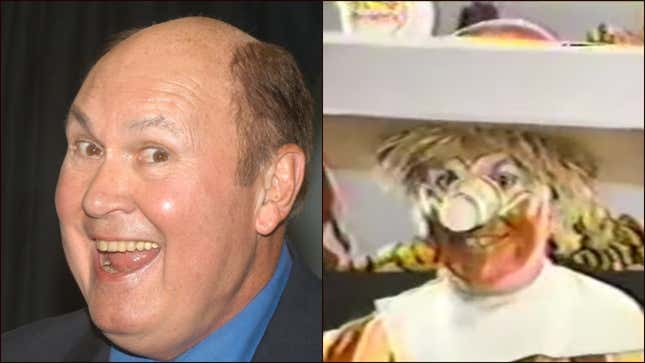
I know this might be hard to believe, but it was not all that long ago that children were seriously into clowns. Geriatric millennials such as myself have never trusted the motives of those grease-painted monsters; by the time Pennywise the Clown was, for some reason, brought to life on network television in 1990, we—and every generation to come after—were thoroughly, unequivocally terrified of clowns.
Boomers, however, are an entirely different story. When they were tots in the Eisenhower era, clowns were everywhere. Kids just couldn’t get enough of them. They had clowns at their birthday parties, clowns on their bedsheets, clowns on their television sets; anywhere there were kids, there was probably a clown somewhere close by. So what did you do if you wanted to lure children into someplace like... oh, say, a restaurant? You got yourself a clown, of course.
This is what happened in 1960, when Oscar Goldstein, a McDonald’s franchisee in Washington D.C., decided to sponsor his local television station’s production of Bozo’s Circus, starring future Today weatherman/national treasure Willard Scott as the titular Bozo the Clown. (I was not aware of Scott’s colorful clown past until last week, when my “are clowns coming to eat me” Google Alert pinged my inbox with news of his death.) The investment paid off, increasing McDonald’s D.C.–area business by 30%, because, again, Boomer babies really frikkin’ loved clowns.
A few years later, Willard Scott’s tenure as Bozo came to an end, which is when Goldstein decided to make him an offer that he couldn’t refuse. For you see, true artists do not merely wish to walk in another clown’s comically oversized shoes. They wish to follow their muse, strap on big, red, floppy shoes of their very own, and run like the wind. Goldstein offered Scott the chance to create a clown persona to to hawk burgers on regional television, and fill children’s hearts with a feeling that was absolutely, positively not bone-chilling terror.
Willard Scott, as we all now know, was a consummate showman, and took Goldstein up on his offer. It was Scott that dreamed up the idea for “Ronald McDonald, the Hamburger-Happy Clown,” complete with a cardboard box hat, a paper cup nose, and the magical ability to generate hamburgers in the region around his belly button. That’s the sort of high-quality entertainment kids used to go crazy for! Soon enough Scott was filming a second commercial, one that seemed to imply children should never accept food from strangers, but if that stranger is a clown, then it’s totally cool.
Willard Scott made one more commercial as Ronald McDonald, in which he entered the Space Race by clinging onto the hull of a rocket, and low-key announced that McDonald’s had already colonized the moon.
The McDonald’s corporation began buying back its franchised restaurants in the mid-1960s for quality control purposes, and when it took control over Goldstein’s D.C. locations, the rights to the Ronald McDonald character came with it. Realizing the clown held the keys to a veritable gold mine, the company decided to take the character national and, according to Scott’s 1982 memoir The Joy of Living, promised Scott that he would continue to be the man behind the makeup. Then, shortly before he was to introduce America to his alter ego at the 1966 Macy’s Thanksgiving Day Parade, Scott was replaced by a new clown—a decision, he wrote, that was made on account of his husky figure.
Though it most definitely must suck to be told you’re not physically attractive enough to be a hamburger clown, things, as we know, turned out pretty spectacularly for Willard Scott: in 1967 he abandoned the clown life and turned his sights to the heavens, becoming a professional weatherman—a job that he later said “a trained gorilla could do.” To think: had McDonald’s been a little less dickish, the worlds of fast food and morning news could have both been entirely different. Perhaps in an alternate universe where the true Ronald McDonald reigned supreme, the children do not scream whenever they see a clown.